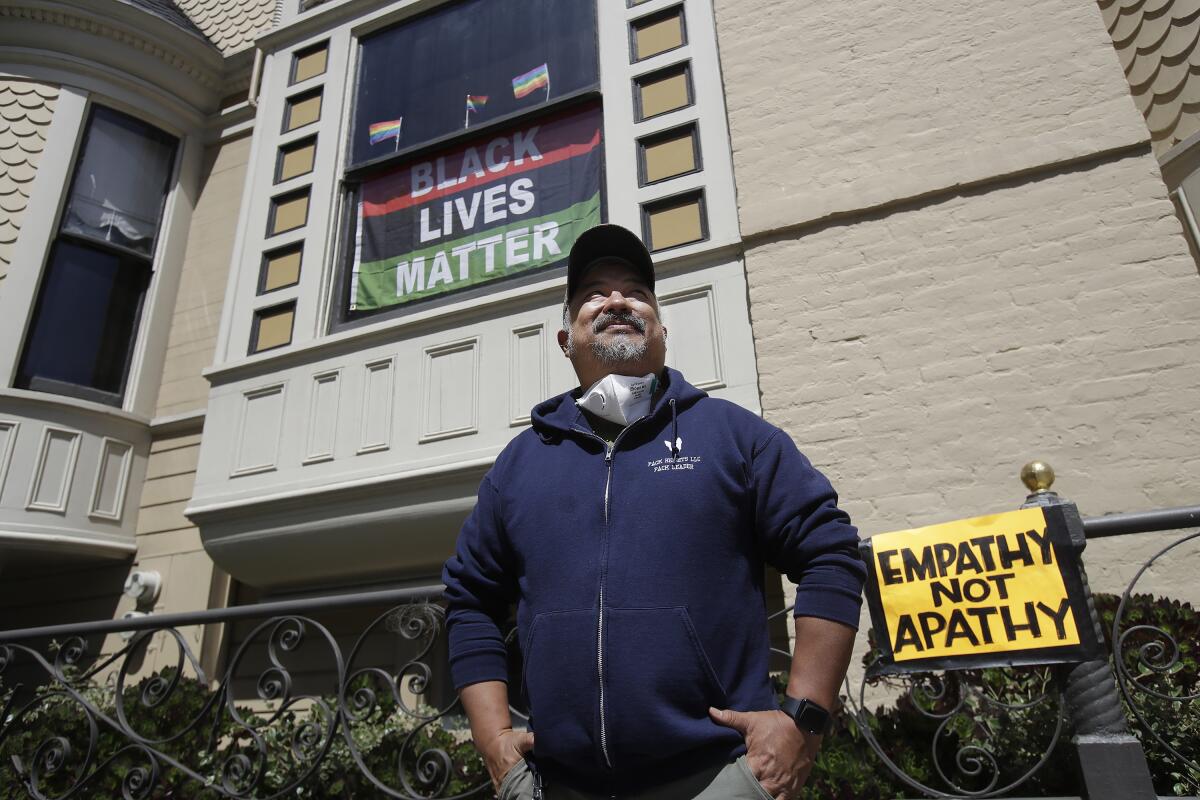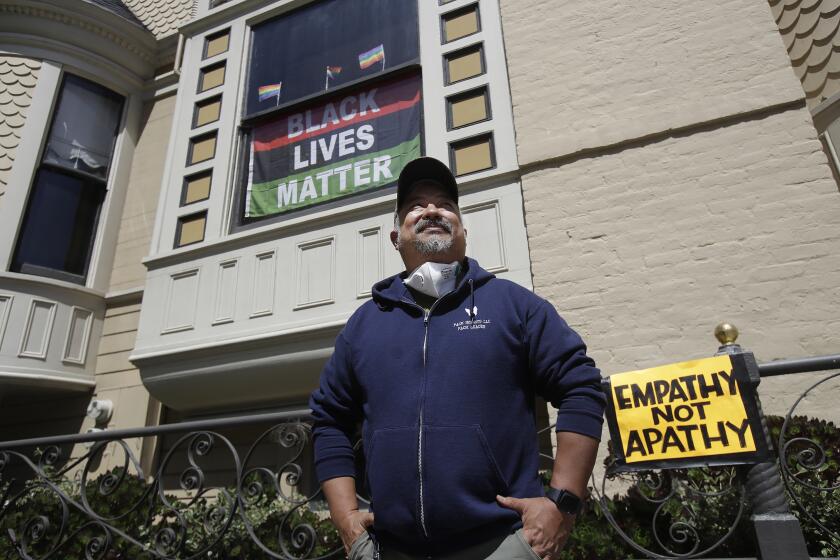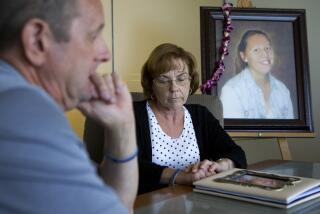San Francisco supervisors to vote on ‘CAREN Act’ to discourage racially biased 911 calls

Fed up with white people calling 911 about people of color selling water bottles, barbecuing or otherwise going about their lives, San Francisco supervisors are set to approve new hate-crime legislation giving the targets of those calls the right to sue the caller.
The Board of Supervisors is scheduled to vote Tuesday on the Caution Against Racial and Exploitative Non-Emergencies Act, also known as the CAREN proposal in a nod to the widespread meme “Karen,” used to describe a specific type of middle-aged white woman who exhibits behavior that stems from privilege, such as using the police to target people of color.
All 11 supervisors have signed on to the legislation, guaranteeing its passage, despite criticism by some that the proposal’s acronym is sexist and unnecessarily divisive. The proposal would give people the right to sue offending 911 callers in civil court.
In San Francisco, a white couple was criticized on social media after video was widely shared of their questioning a Filipino American who was stenciling “Black Lives Matter” in front of his own home in June. The couple later called police.
James Juanillo said he deliberately chose yellow chalk to match the color of his house, and centered the stencil to be framed by the picture box window. Then a couple approached him, repeatedly demanding to know if it was his home because he was defacing private property.
“They tried to cast it as a criminal scene,” he said. “It was me calmly applying chalk, not spray paint, not in the middle of the night but very deliberately. The only thing that was missing was a Pinot Grigio.”
A San Francisco woman apologizes after a video showed her threatening to call police on a man who wrote ‘Black Lives Matter’ in front of his own home.
Juanillo said he hopes the legislation will discourage people in the future from thoughtlessly calling 911.
Shamann Walton, the supervisor who introduced the legislation, said that “911 calls and emergency reports are not customer service lines for racist behavior. People of color have the right to do everyday activities and should not be subject to being harassed due to someone’s racial bias.”
Walton, who is Black, reeled off examples of people of color being targeted by bogus accusations, including Emmett Till, a Black teenager beaten to death in 1955 after allegations by a white woman who later admitted to lying.
It is crushing to be confronted by police, supporters of the legislation said, because someone saw you as a threat, possibly criminal or as not belonging. It’s especially terrifying for Black people, for whom encounters with police could end in violence, they said.
The “Karen” meme has taken on new meaning during the coronavirus crisis as a label for someone who feels entitled to prioritize her own desires over public safety
“This is not hyperbole,” said Brittni Chicuata, chief of staff at the city’s Human Rights Commission. “This is an established pattern reflected in the disparate treatment of Black people and other people of color in our city and in our country.”
In May, Amy Cooper, a white woman, called 911 from Manhattan’s Central Park, frantically and falsely claiming that an African American man — who had politely asked her to leash her dog — was threatening her.
Cooper has been charged with filing a false police report. The incident also inspired New York state lawmakers to pass a law in June that makes it easier under civil rights law to sue an individual who calls police on someone “without reason” because of that person’s background, including race and national origin.
Under the San Francisco proposal, the discrimination need not be race-based; it can also be due to a person’s sex, age, religion, disability, gender identity, weight or height.
The board received written complaints from eight people — several named with a spelling variant of Karen — who support the legislation but object to its name, which they say is sexist and ageist and should be avoided.
We hear from letter writers named Karen who are upset over the meme on toxic white privilege.
“Yes, I am named Karen, and I do speak up for injustices on a regular occasion,” wrote Karen Shane. “So could we attempt at coming up with some other acronym that doesn’t vilify a whole group of people named Karen/Caryn/Caren?”
Reached by phone, Shane, who lives in a Bay Area suburb and describes herself as a middle-aged white woman, readily pokes fun of her first name and said she’s aware that even complaining about it is something that a “Karen” would do. But she feels that Walton, the sponsoring supervisor, should not cheapen what she agrees is important legislation.
It’s as if he “opened the thesaurus and picked some words that would spell the name, when in fact it should be ‘misuse of 911’ or ‘racial misuse of 911,’” she said. “By using the name ‘CAREN,’ he’s just perpetuating a racial divide. Granted it’s not a protected class, but it’s somebody’s name.”
Walton has dismissed the concerns, saying the legislation does not refer to an individual, male or female.
More to Read
Start your day right
Sign up for Essential California for news, features and recommendations from the L.A. Times and beyond in your inbox six days a week.
You may occasionally receive promotional content from the Los Angeles Times.








